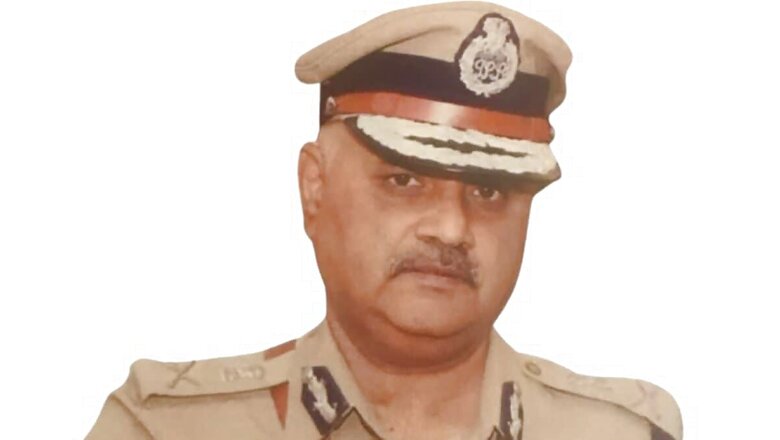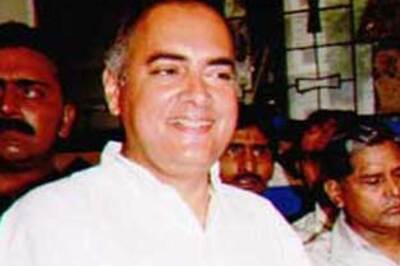Extensive Work on Banning Outfits Like PFI, How Praveen Sood Became PM’s Top Choice for CBI Director

views
Prime Minister Narendra Modi noticed Praveen Sood, the director-designate of the Central Bureau of Investigation (CBI), for his “valuable contribution” in banning the “unlawful” Popular Front of India (PFI), but his presentation on ‘Tackling Radical Organisations: The Road Ahead” at the DGs’ conference in January impressed Modi in particular, News18 has learnt.
Sood will take charge as CBI director tomorrow.
Even though the process of selection and appointment of the CBI director is tedious as it passes through several levels and filters, Sood was on top of PM’s list of choices, a senior IPS officer serving in the home ministry told News18. He was unanimously chosen by two of three members of a high-power committee — PM Modi and Chief Justice of India DY Chandrachud — while Opposition leader Adhir Ranjan Chowdhury dissented.
Sood is the 1986-batch IPS officer of the Karnataka cadre. Another officer among the three shortlisted was in the running for the post. But his past associations with a few former ministers was considered by a high-powered committee, who then ruled out his name. This brought the number of choices to two, said sources in the government.
“After the Alok Verma (ex-CBI director) episode, the government was on shaky ground and it only wanted to consider seniority, work experience and skills. Sood ticked all boxes. Had there been anything political about the appointment, Chief Justice of India DY Chandrachud would not have agreed. Sood has a clean track record, understanding about investigation and the senior most officers,” the officer added.
Verma was removed in 2019 by the high-powered committee headed by the PM following several allegations against him and the public spat between him and his deputy Rakesh Asthana.
“PM Modi was very much impressed with his (Sood) work on militant organisations and wants to have a team of senior officers who can build a robust mechanism. Sood is articulate, and he brings knowledge with balance on the table. The committee on tackling radical organisation was headed by him as the senior most officer, but it also included Dinkar Gupta, DG, National Investigating Agency (NIA) and other senior officers,” the officer further said.
News18 has accessed documents, which show how Sood worked persistently on dealing with radical organisations such as the PFI. “His inputs were always substantial and valuable. During his presentation, he said tackling such radical groups needs to be the priority in the interests of social harmony and national security,” said a source in the ministry.
‘Radicals Corrupting Muslim Minds’
News18 has spoken with multiple senior officers, who were present at the conference and are aware of Sood’s presentation. According to a second senior police officer, the presentation was on how “for the purpose of radicalising the Muslim community, the groups present a radical interpretation of Islamic scriptures and, specifically, convolute the Islamic concepts of Jihad, Hizrat, Khilafat and Sahadat.”
“He also added how these radical forces are instrumental in corrupting the minds of the Muslim community and pushing them on the violent path. The government liked his ideas and his ways to deal with such groups,” the officer told News18. The groups thrive because they succeed in creating a sense of victimhood in Muslim psyche, which, in turn, brings a sense of communal hatred towards the majority community, the presentation said.
Apart from Sood, the committee, which prepared the presentation, included Dinkar Gupta, DG, NIA, P Doungel, DGP, Manipur, Bhaskar Jyoti Mahanta, DGP, Assam, Rajnish Seth, DGP, Maharashtra, Anil Kant, DGP, Kerala and other senior officers.
The committee led by Sood explained the reasons behind radicalisation and the ways to deal with it. Following the countrywide raids by the NIA and Enforcement Directorate at the offices and premises of militant organisations, Sood, in his paper, mentioned that there are possibilities that these outfits would revive their activities and operations in new ways, citing the experience after banning the Students’ Islamic Movement of India (SIMI).
“We understand that there are several factors involved in selecting three final names for the position of the CBI director. But the PM was aligned towards him because of his experiences in handling such groups and his tenure in handling crime investigation. Despite dissent from Adhir Ranjan Chowdhury, the leader of Opposition, he stuck to his choice and appointed Praveen Sood as the director. There can be subjective interpretation behind choosing an officer for such a position, but this is one of many reasons,” a top official of the home ministry said.



















Comments
0 comment